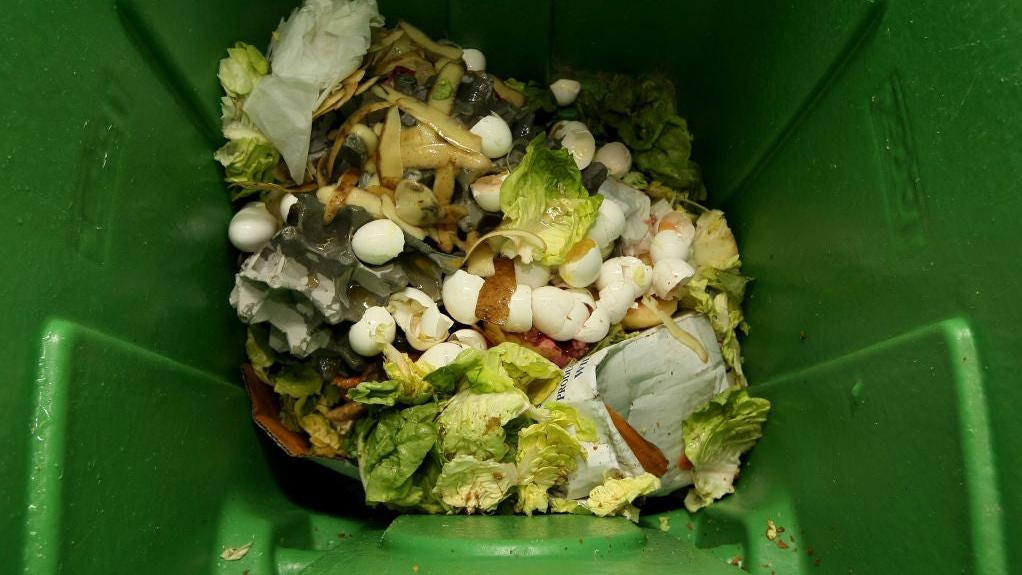Apparently Wisconsin's Landfills Are Chock Full O' Wasted Food
And all that wasted food is chock full o' greenhouse gases.
Forget about pumpkin spice and whatever "edible" nonsense is going down on TikTok; there's a new food trend emerging, and in this (mostly) professional food writer's opinion, it could become the hottest of hot topics in 2022. That's right, ladies and gentlemen, I'm talking about food waste, which is destroying our planet and is largely preventable.
When food decomposes in a landfill it produces a gargantuan amount of methane, a greenhouse gas that's 25 times more potent than carbon dioxide when it comes to trapping heat in the atmosphere. This is bad! And exactly how much food is rotting away in our landfills? Judging by a recent study from Wisconsin's Department of Natural Resources, a whole fucking lot.
Based on data collected from 14 of garbage disposal sites, approximately 30% of Wisconsin's landfill waste by weight is made up of organic materials, and the majority of those materials are food waste and scraps. Overall it's estimated that about 1.3 million tons of food is rotting away across the state's 76 landfills, which is an difficult number to (for lack a better term) digest when you consider that over half a million Wisconsinites struggle with food insecurity.
As Casey Lamensky, Solid Waste Coordinator for the Department of Natural Resources, explained to the Wisconsin State Journal, when food is dumped into landfills it's tightly compressed with other waste products in order to take up less space. Packing down the garbage pushes out oxygen, and without oxygen, food can't break down like nature intended. Instead, it gets broken down by microorganisms that produce methane.
When food waste is allowed to decompose naturally, like in a compost heap, microbes convert it into nutrient-rich soil, producing valuable fertilizer and keeping the carbon out of the atmosphere. If you can compost your food, great! But if you can't, Lamensky suggests you can help fight the climate problem by, well, wasting less food.
